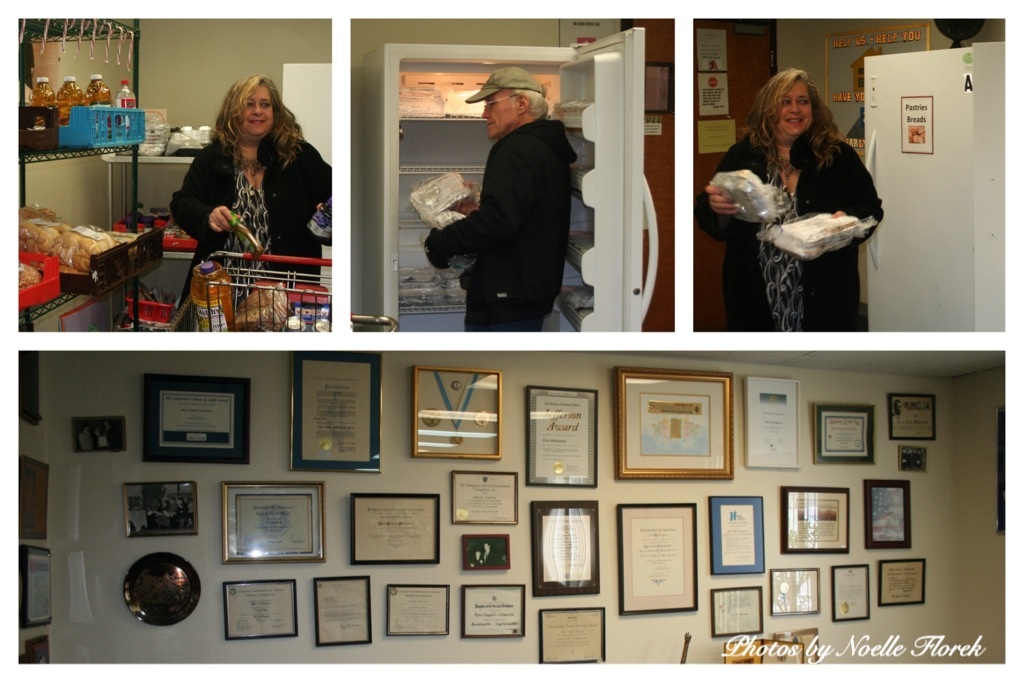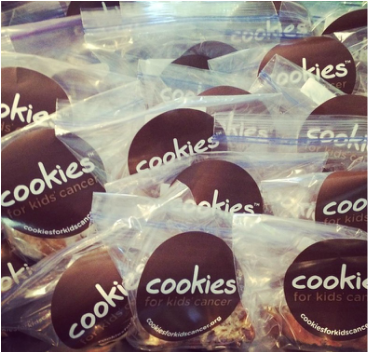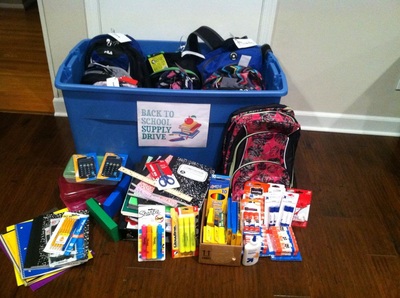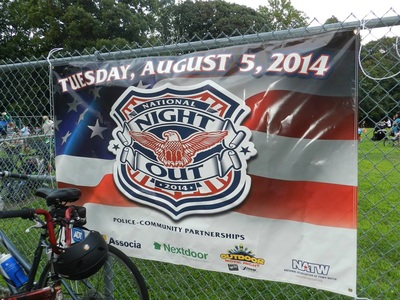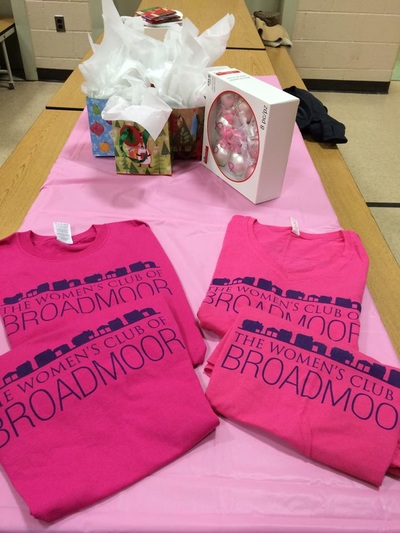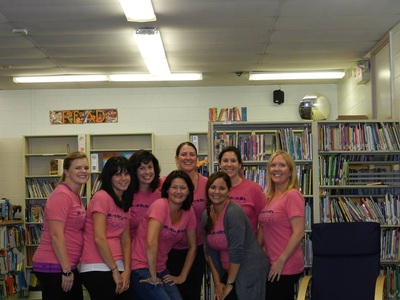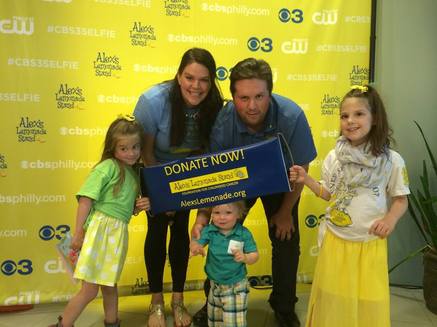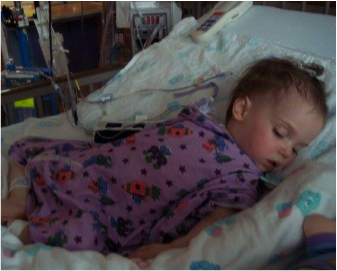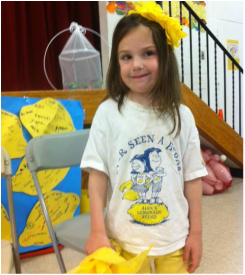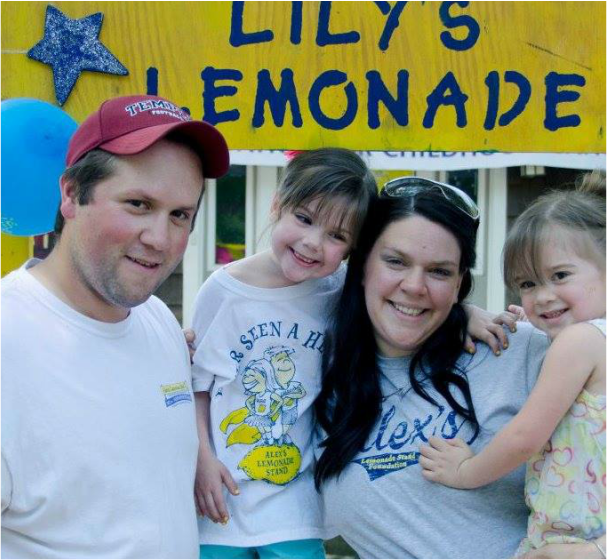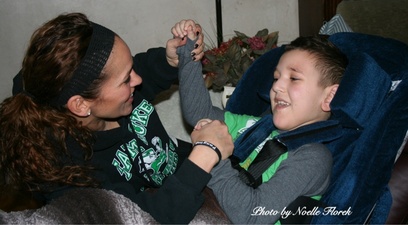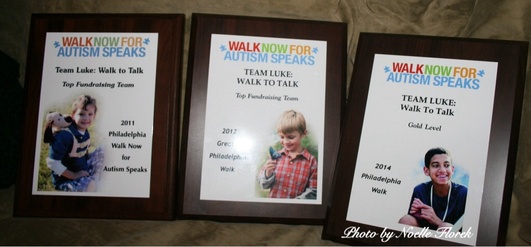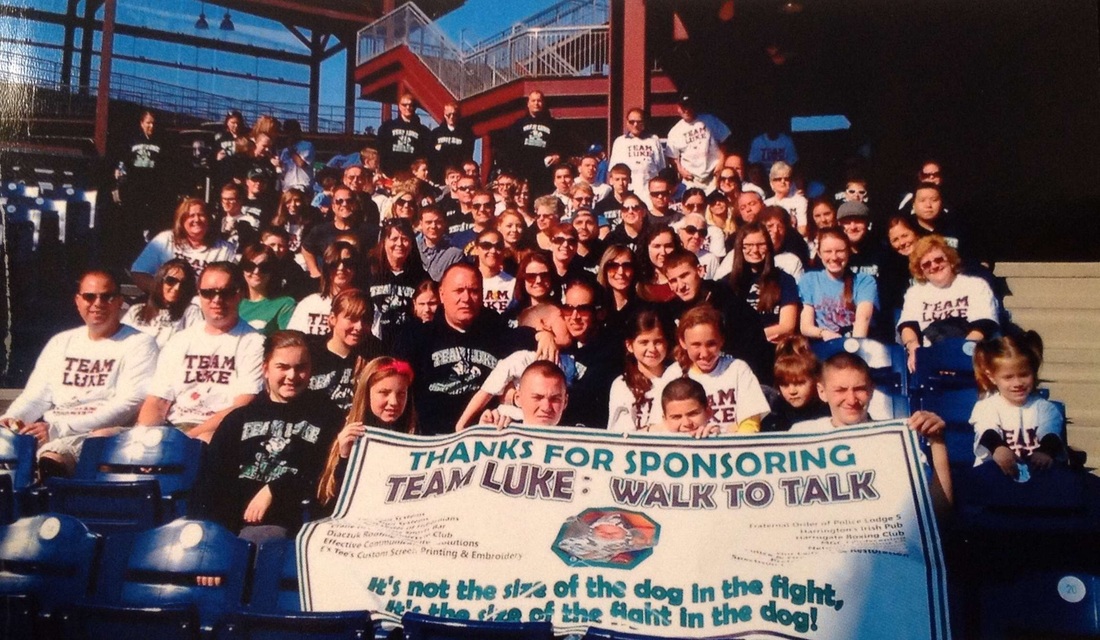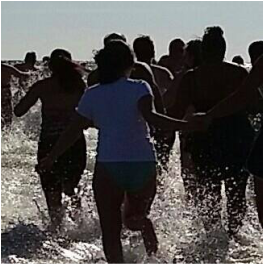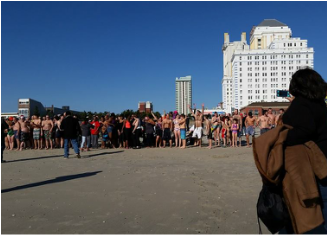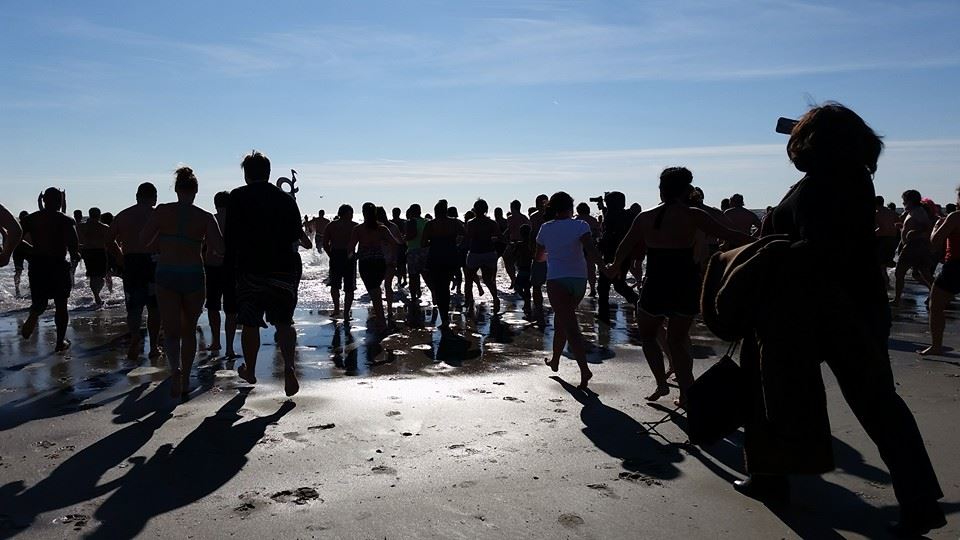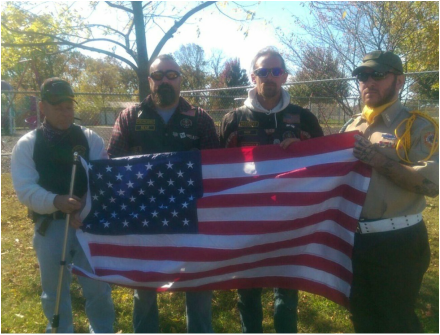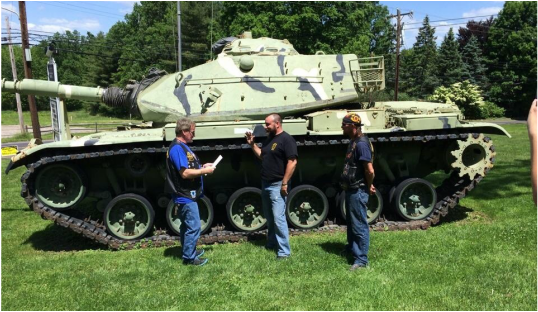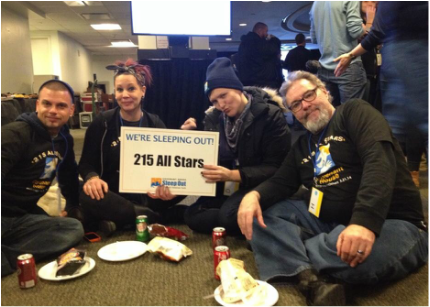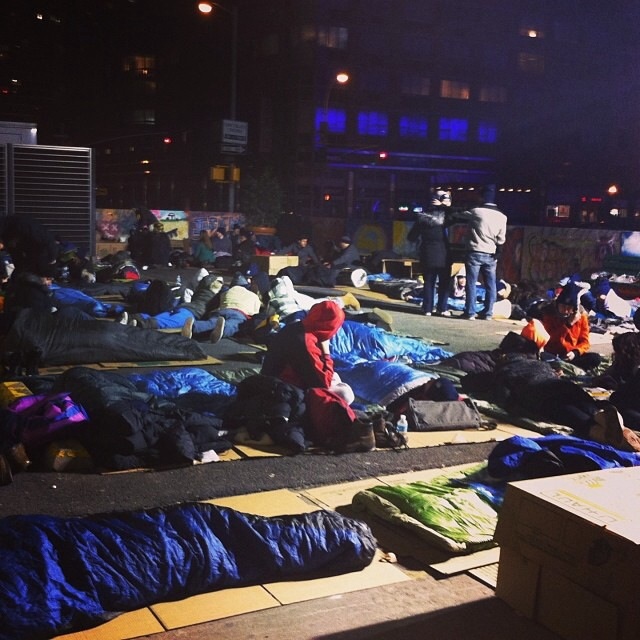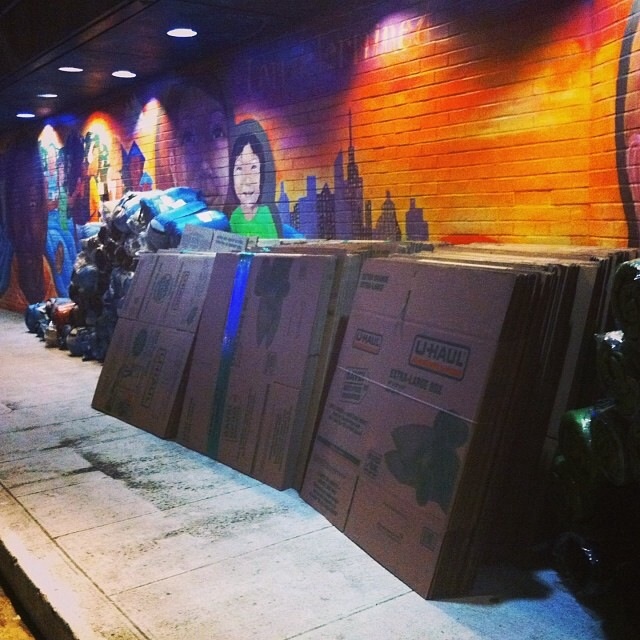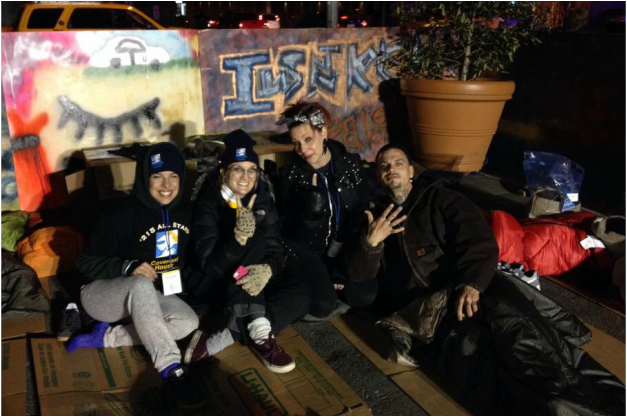All this week we spoke with people who represented a charity, foundation, or fundraising effort in some way. It was an honor to present and promote a variety of people who are giving in some way, or those who are making it possible for others to do so. People are so generous with their time and resources throughout the holiday season. We wanted to remind everyone once again that the need continues to exist for people and organizations everywhere, even after holidays are over. There are so many ways to give. Sometimes it's money, sometimes it's time, sometimes it's a hand or an ear or a voice. . in this case it's a meal and a friend. We're closing out the week with an incredible, local, grassroots charity program, Aid for Friends. If ever you've heard someone say, or have yourself said, "we need to help people out more here at home", this organization is the epitome of that sentiment. So read on. And be sure to take a look back at the previous posts for this week.
So spread the word, share the information, and by all means if you possibly can... give!
So spread the word, share the information, and by all means if you possibly can... give!
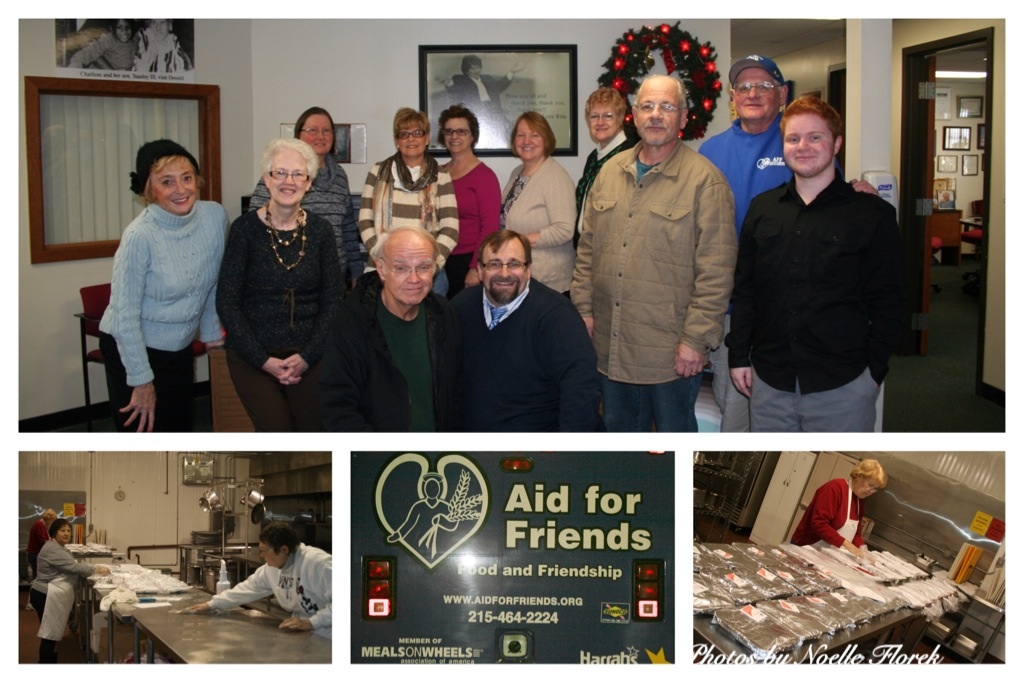
WHAT DOES AID FOR FRIENDS DO AND HOW LONG HAS IT BEEN AROUND?
"We just celebrated our 40th anniversary last year and we provide free meals and friendly visiting to people who are home bound and isolated- mostly frail, elderly people. 28% of the people we serve are age 85 or older but then there's another 27-28% that are age 60 or younger. There's a fair amount of younger disabled people that we take care of. People with amputations, diabetics, people with MS, victims of serious accidents, even crime. We're actually one of the biggest providers of home delivery meals in the area. Right now we're doing about 360,000 meals a year. We're serving 2200 people on an aggregate basis throughout the year."
IS THIS STRICTLY FOR PEOPLE IN NORTHEAST PHILADELPHIA?
"No, we serve the whole five county area (Philadelphia, Bucks, Montgomery, Delaware, and Chester) and we also serve maybe 10-20 people in Burlington county (New Jersey)."
HOW DID AID FOR FRIENDS GET STARTED?
"My mother actually started it (Rita Ungaro-Schiavone). She was a volunteer social worker at a YWCA. She used to work for the Cardinal's Commission on Humans Relations downtown at 222 (Philadelphia Archdiocese building). She met this Quaker woman there that ran this "Y" on Arrott St. in Frankford. Her job was to wait for people to come in there with their problems. But people were calling in who were not able to leave their homes, so she went out to see them. It's funny, this cold day reminds me of the day we went to see Dorothy. I was actually with her that day. I'll never forget it. Going into her house, it was so cold you could see your breath inside her house. Dorothy was about 60, but she had the mind of a 5 year old. She was a hoarder and you were literally walking through a maze of piles of stuff about five feet high. She was very upset and crying to my mother saying she was tired of being alone and hungry. She said "My neighbors hate me 'cause I get my food from their trash cans. They throw things at me. I haven't had heat in three weeks. I'm not able to cook or care for myself." She had a little container of rat poison on the table and told my mom she was ready to end it all that day. So mom made two promises to Dorothy: one: that she would feed her and two: that she would be her friend. And she did keep those two promises."
"She made similar promises to about eleven other people. So she was cooking for eleven other people and bringing them the meals and visiting with them for a little while. They weren't just hungry for food, they were hungry for contact with people. For some people, their relatives have all died off or maybe they were the black sheep of the family, no one really wants to deal with them for one reason or another. So they're in their homes all alone, forever. It's basically like their own little prison. She (my mother) was determined to help these people any way she could. It was very fortunate that she worked down at the Archdiocese because she met lots of clergy people from other denominations as well. She was part of this group called the Christian Family Movement that was about actualizing your faith by doing good works. She was fortunate because those people were among the first volunteers for Aid For Friends, helping Mom cook the meals and taking them to the people and visiting with them. Through her connections, she was able to get speaking engagements at churches."
"For 30 years, my father drove her to whatever church would have her speak and recruit volunteers. This was in the mid 70's when lots of people went to church, and were younger, especially in this area. We estimate that over those 30 years that she did that, she recruited at least 20,000 people face to face. She was able to grow Aid For Friends to a point where today, we feed 2200 people throughout the year. It's not a holiday program where they only get a meal for Thanksgiving. They get them all year long. The meals are always free. There's no sliding scale. There's no time or area limit, no age limit. The only reason we don't serve people under 18 is because if you're that young, there's other programs for them. This is a godsend for these people because without it, they'd be lost. We think over our 40 years we've probably served around 14,000 people. Some people will come on late in the year but get counted for the year. Some will come on and come off quickly. For instance, if you had an operation and didn't have anyone home to take care of you, and we found out about it, we'd help you with meals and find someone to deliver the meals."
HOW DO YOU FIND OUT ABOUT THOSE IN NEED?
"It's a combination. I would say most of the people are nominated by other people, social workers, agencies, home nursing agencies call us a lot, hospital social workers call us a lot. Clergy call us. When we get a call about someone, we'll go out and visit them and try to assess their situation as best we can, determine if they're truly home bound and isolated. The problem is, times are hard for a lot of people, so people will try to get meals, and I understand that, but these are home delivered (free) meals. The person that deliver the meals is a volunteer and taking their time out to do that, using their own vehicle and gas. So that's why we want to make sure that the people that we serve have no other way of doing that. We have to respect the efforts of the visitor. If you're able to get out and walk, then there's other avenues available to you. They're not necessarily easy. If you're very poor, you're probably not able to afford a car. There's also the problems of living in an area where there aren't good supermarkets. That's difficult, but our resources are limited so we focus on people that aren't able to care for themselves."
"My mother actually started it (Rita Ungaro-Schiavone). She was a volunteer social worker at a YWCA. She used to work for the Cardinal's Commission on Humans Relations downtown at 222 (Philadelphia Archdiocese building). She met this Quaker woman there that ran this "Y" on Arrott St. in Frankford. Her job was to wait for people to come in there with their problems. But people were calling in who were not able to leave their homes, so she went out to see them. It's funny, this cold day reminds me of the day we went to see Dorothy. I was actually with her that day. I'll never forget it. Going into her house, it was so cold you could see your breath inside her house. Dorothy was about 60, but she had the mind of a 5 year old. She was a hoarder and you were literally walking through a maze of piles of stuff about five feet high. She was very upset and crying to my mother saying she was tired of being alone and hungry. She said "My neighbors hate me 'cause I get my food from their trash cans. They throw things at me. I haven't had heat in three weeks. I'm not able to cook or care for myself." She had a little container of rat poison on the table and told my mom she was ready to end it all that day. So mom made two promises to Dorothy: one: that she would feed her and two: that she would be her friend. And she did keep those two promises."
"She made similar promises to about eleven other people. So she was cooking for eleven other people and bringing them the meals and visiting with them for a little while. They weren't just hungry for food, they were hungry for contact with people. For some people, their relatives have all died off or maybe they were the black sheep of the family, no one really wants to deal with them for one reason or another. So they're in their homes all alone, forever. It's basically like their own little prison. She (my mother) was determined to help these people any way she could. It was very fortunate that she worked down at the Archdiocese because she met lots of clergy people from other denominations as well. She was part of this group called the Christian Family Movement that was about actualizing your faith by doing good works. She was fortunate because those people were among the first volunteers for Aid For Friends, helping Mom cook the meals and taking them to the people and visiting with them. Through her connections, she was able to get speaking engagements at churches."
"For 30 years, my father drove her to whatever church would have her speak and recruit volunteers. This was in the mid 70's when lots of people went to church, and were younger, especially in this area. We estimate that over those 30 years that she did that, she recruited at least 20,000 people face to face. She was able to grow Aid For Friends to a point where today, we feed 2200 people throughout the year. It's not a holiday program where they only get a meal for Thanksgiving. They get them all year long. The meals are always free. There's no sliding scale. There's no time or area limit, no age limit. The only reason we don't serve people under 18 is because if you're that young, there's other programs for them. This is a godsend for these people because without it, they'd be lost. We think over our 40 years we've probably served around 14,000 people. Some people will come on late in the year but get counted for the year. Some will come on and come off quickly. For instance, if you had an operation and didn't have anyone home to take care of you, and we found out about it, we'd help you with meals and find someone to deliver the meals."
HOW DO YOU FIND OUT ABOUT THOSE IN NEED?
"It's a combination. I would say most of the people are nominated by other people, social workers, agencies, home nursing agencies call us a lot, hospital social workers call us a lot. Clergy call us. When we get a call about someone, we'll go out and visit them and try to assess their situation as best we can, determine if they're truly home bound and isolated. The problem is, times are hard for a lot of people, so people will try to get meals, and I understand that, but these are home delivered (free) meals. The person that deliver the meals is a volunteer and taking their time out to do that, using their own vehicle and gas. So that's why we want to make sure that the people that we serve have no other way of doing that. We have to respect the efforts of the visitor. If you're able to get out and walk, then there's other avenues available to you. They're not necessarily easy. If you're very poor, you're probably not able to afford a car. There's also the problems of living in an area where there aren't good supermarkets. That's difficult, but our resources are limited so we focus on people that aren't able to care for themselves."
HOW DO YOU GET DONATIONS?
"There's two primary types of volunteers, and we are volunteer driven, they do 99% of the work. We have volunteers who will deliver meals. They come to a freezer site once a week (we have about 230 freezer sites in the five county area in churches, a few in businesses and organizations, but mostly in churches) , get 7 meals, and bring them to someone like Dorothy. They sit and talk with them for a little while. If they see problems, they can call the office. There are a couple of outreach workers out there (in the office), and they can sometimes find different types of aid in case they need it. We also provide things like freezers and toaster ovens because some people are so poor that they don't have a working oven or freezer. If you don't have those things, you can't utilize the food. Our meals are taken in frozen and delivered frozen, so that way they can do it once a week."
"The other primary volunteers are the cook volunteers. We distribute aluminum trays, plastic bags and menu sheets. A lot of people will have a little extra (already) or make a little extra knowing they're part of the program, and they bring those trays home, use their own foil, fill out a menu sheet stating what is in the meal, the date it was prepared and there's a checklist of common food allergens. They put it in the bag we gave them and twist tie it off and freeze it. After they have several in their freezer, they bring it to their church freezer. Then they're available to the visitors to come and pick up. We also have cooking groups who make meals in a congregate setting. Protestants like to do that as part of their fellowship. We also have a couple of Catholic Churches that are high meal producers for us for a number of years. St. Dominic's on Frankford Ave. has been our top meal producer almost since the beginning. They do like 13,000 meals a year. It's really something. We also have a kitchen here where groups can come in and cook. 10% of the meals actually come from here. Our kitchen is pretty big. We also have food in the warehouse that cooks can come in and use. Most of them buy the food themselves, which is pretty amazing. We also have a couple churches in Bucks County, like St. Ignatius, that also do about 10-12,000 meals a year, as well as other churches."
DO YOU TAKE FOOD DONATIONS FROM PEOPLE?
"Yes, we take canned goods, non perishables."
HOW ARE YOU FUNDED TO KEEP THE LIGHTS ON, ADMINISTRATIVE COSTS, ETC?
"That's a constant struggle every year. It's a combination of individual donations, which is the vast majority, we get a little bit of state money (5%) through PCA (Philadelphia Corporation for Aging) they help us buy the aluminum trays. There are some grants from foundations and also United Way and federal, state and municipal employees that have their own version of United Way."
HOW CAN A PERSON GET INVOLVED WITH AID FOR FRIENDS?
"They would call our office at 215-464-2224 and ask to speak to Lynn, Jeanie, Natalia or Mary. They handle the intake of the volunteers, particularly visitors.
We are always looking for donations. We do as much work as well known organizations, and maybe they're more skilled at public relations or have more resources than we do, but we don't have the money to spend to get our name out there. But we are very efficient. The volunteers are doing most of the work so every dollar you donate is multiplied 7 or 8 times in kind by the visiting and food value. This also saves tax payers a ton of money. Otherwise, many of these people would be institutionalized. Take 2000 people at $50,000-100,000 a year, you're talking 100-200 million dollars a year for nursing home care. Our budget is $900,000 a year. There are organizations that serve the same number of people we do and their budget is about three times the amount of ours. No one here is making really big bucks, no advertising agencies or media campaigns. It's all about helping people.
Visiting volunteers is always our greatest need. You have to very reliable since that person is relying on you for their food. There's a background check. Then they go once a week or even every other week."
DO YOU ASSIGN SOMEONE TO A PLACE THAT'LL BE CONVENIENT FOR THEM?
"That's what we try to do, to make it as close to where they are as possible. Like I said, we have 230 freezer sites, so there's a lot of places in the area, diverse areas you can go. People that are in the city, where maybe the neighborhood isn't the best, that's where the greatest need is.
People who are somewhat social, visiting is probably the most rewarding. Friendship is always a two way street. People tell me all the time that they got more out of it. If you think of all the time people spend watching TV, being on the computer, playing games....if you took just an hour a week or even every other week, it really changes someone else's life. Someone that has no one at all, now they have a friend when they didn't have one before. I've done it myself and I can tell you this: you are a gift to them but believe it or not, they become a gift to you."
"There's two primary types of volunteers, and we are volunteer driven, they do 99% of the work. We have volunteers who will deliver meals. They come to a freezer site once a week (we have about 230 freezer sites in the five county area in churches, a few in businesses and organizations, but mostly in churches) , get 7 meals, and bring them to someone like Dorothy. They sit and talk with them for a little while. If they see problems, they can call the office. There are a couple of outreach workers out there (in the office), and they can sometimes find different types of aid in case they need it. We also provide things like freezers and toaster ovens because some people are so poor that they don't have a working oven or freezer. If you don't have those things, you can't utilize the food. Our meals are taken in frozen and delivered frozen, so that way they can do it once a week."
"The other primary volunteers are the cook volunteers. We distribute aluminum trays, plastic bags and menu sheets. A lot of people will have a little extra (already) or make a little extra knowing they're part of the program, and they bring those trays home, use their own foil, fill out a menu sheet stating what is in the meal, the date it was prepared and there's a checklist of common food allergens. They put it in the bag we gave them and twist tie it off and freeze it. After they have several in their freezer, they bring it to their church freezer. Then they're available to the visitors to come and pick up. We also have cooking groups who make meals in a congregate setting. Protestants like to do that as part of their fellowship. We also have a couple of Catholic Churches that are high meal producers for us for a number of years. St. Dominic's on Frankford Ave. has been our top meal producer almost since the beginning. They do like 13,000 meals a year. It's really something. We also have a kitchen here where groups can come in and cook. 10% of the meals actually come from here. Our kitchen is pretty big. We also have food in the warehouse that cooks can come in and use. Most of them buy the food themselves, which is pretty amazing. We also have a couple churches in Bucks County, like St. Ignatius, that also do about 10-12,000 meals a year, as well as other churches."
DO YOU TAKE FOOD DONATIONS FROM PEOPLE?
"Yes, we take canned goods, non perishables."
HOW ARE YOU FUNDED TO KEEP THE LIGHTS ON, ADMINISTRATIVE COSTS, ETC?
"That's a constant struggle every year. It's a combination of individual donations, which is the vast majority, we get a little bit of state money (5%) through PCA (Philadelphia Corporation for Aging) they help us buy the aluminum trays. There are some grants from foundations and also United Way and federal, state and municipal employees that have their own version of United Way."
HOW CAN A PERSON GET INVOLVED WITH AID FOR FRIENDS?
"They would call our office at 215-464-2224 and ask to speak to Lynn, Jeanie, Natalia or Mary. They handle the intake of the volunteers, particularly visitors.
We are always looking for donations. We do as much work as well known organizations, and maybe they're more skilled at public relations or have more resources than we do, but we don't have the money to spend to get our name out there. But we are very efficient. The volunteers are doing most of the work so every dollar you donate is multiplied 7 or 8 times in kind by the visiting and food value. This also saves tax payers a ton of money. Otherwise, many of these people would be institutionalized. Take 2000 people at $50,000-100,000 a year, you're talking 100-200 million dollars a year for nursing home care. Our budget is $900,000 a year. There are organizations that serve the same number of people we do and their budget is about three times the amount of ours. No one here is making really big bucks, no advertising agencies or media campaigns. It's all about helping people.
Visiting volunteers is always our greatest need. You have to very reliable since that person is relying on you for their food. There's a background check. Then they go once a week or even every other week."
DO YOU ASSIGN SOMEONE TO A PLACE THAT'LL BE CONVENIENT FOR THEM?
"That's what we try to do, to make it as close to where they are as possible. Like I said, we have 230 freezer sites, so there's a lot of places in the area, diverse areas you can go. People that are in the city, where maybe the neighborhood isn't the best, that's where the greatest need is.
People who are somewhat social, visiting is probably the most rewarding. Friendship is always a two way street. People tell me all the time that they got more out of it. If you think of all the time people spend watching TV, being on the computer, playing games....if you took just an hour a week or even every other week, it really changes someone else's life. Someone that has no one at all, now they have a friend when they didn't have one before. I've done it myself and I can tell you this: you are a gift to them but believe it or not, they become a gift to you."
